First Nations peoples
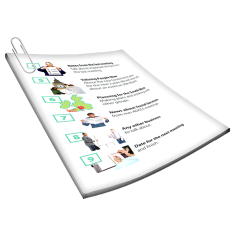
This information is about the mental health of First Nations peoples.
It has information on
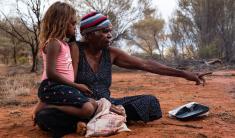
- Key points for First Nations peoples
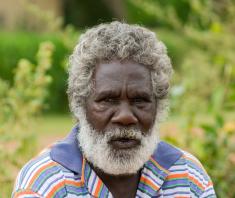
- Worries you might have when getting help for your mental health and what you can do
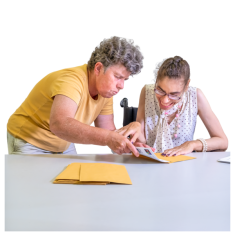
- Services and supports
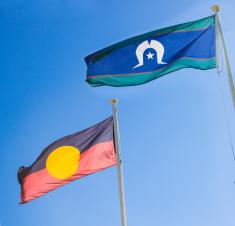
First Nations peoples are the Aboriginal and Torres Strait Islander peoples.
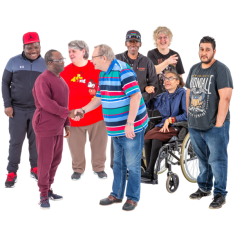
Each First Nations person is different.
Each First Nations community is different.

Many First Nations peoples have strong connections to their
- Culture
- Community
- Land
- Spirituality

Land describes a place you might feel a spiritual connection to because it is where your family came from.
It is sometimes called country.

Spirituality is a way of understanding life and connecting with others.
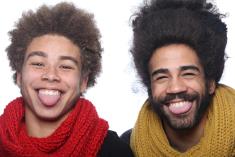
These connections can help to support good mental wellbeing.

First Nations peoples with intellectual disability can experience more difficult things than other people.
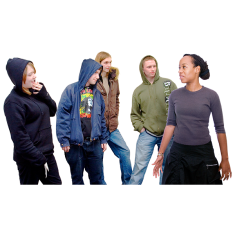
They can face discrimination.
Discrimination is when someone is treated badly because of something about them they cannot control.

First Nations peoples with intellectual disability can have more health problems.
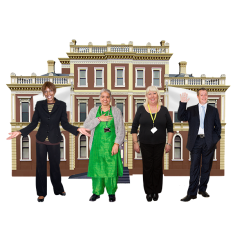
First Nations peoples with intellectual disability might have more contact with the criminal justice system.

For more information about the criminal justice system go to https://www.idmhconnect.health/people-contact-justice-system/ER

Below are some worries you might have when you try to get support for your mental health.
We include some ideas for what you can do.

Mental health is about
- How you think
- How you feel
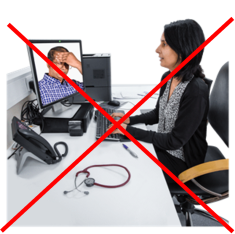
You are worried you will not get support for your mental health because you are a First Nations person or have a disability
This is what you can do.
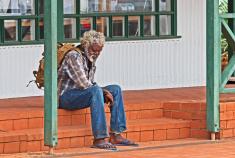
It is discrimination if you do not get mental health support because you
- Are a First Nations person
- Have a disability

Discrimination is not OK.
Rights are rules about how everybody should be treated fairly.
A right is something everyone has.

Everyone has the right to have good health.
Everyone has the right to health care.
Mental health care is a type of health care.
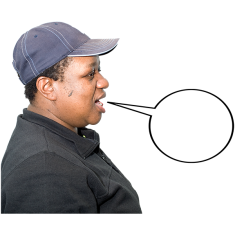
If you experience discrimination you can
- Speak up and say it is not OK
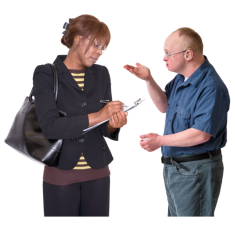
- Make a complaint
A complaint is when you let someone know you are not happy with someone.
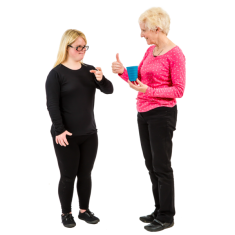
- Communicate with someone you trust
To communicate is how you understand and share your feelings or information.
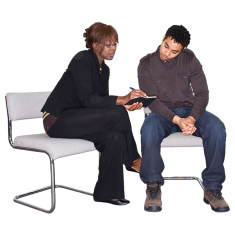
There are many people you might trust.
For more information about who you might trust go to https://www.idmhconnect.health/someone-trust

For more information about
- Your rights go to
https://www.idmhconnect.health/your-rights/ER
- How to speak up go to
https://www.idmhconnect.health/about-advocacy/ER
- Making a complaint go to

You are worried mental health workers will not understand and be able to help you
This is what you can do.
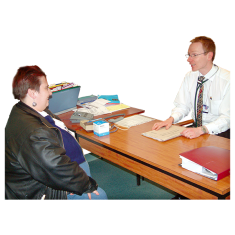
Mental health workers are people who work to help you with your mental health.

You can ask for a mental health worker who
- Knows about intellectual disability
- Has worked with other First Nations peoples
You can ask your mental health worker to communicate with your Mob if you want.

It is OK if you do not want to include your Mob.

For more information about how your mental health worker can work with your Mob go to
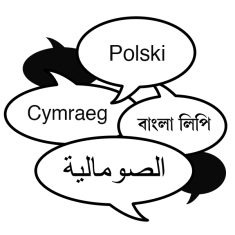
If you are worried you might also want to get support in your language.
You can ask for an interpreter to help you and your family communicate with mental health workers.
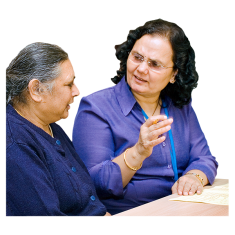
An Interpreter is a person who changes words from your language to a language someone else understands.

To organise an interpreter you or your family can ask
- Your doctor
- The mental health service

You can also ask your mental health worker to call the Translating and Interpreting Service.
The telephone number for this service is 131 450.

You might also want to help others understand your culture.
Your culture is unique to your Mob.

It is important for people who support your mental health to understand your culture.
Understanding your culture can help them to help you.
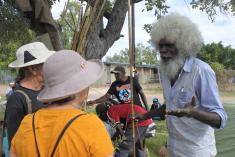
There are different ways to support others to understand your culture.
You might share your story.

You might attend a yarning circle with your mental health worker.
A yarning circle is when you meet with others to communicate openly about things important to you.
Others will not judge what you communicate in a yarning circle.

You are worried about what you have to pay
This is what you can do.
You can ask your GP or health worker about free or cheap mental health supports.
You can ring the NSW Mental Health Line on 1800 011 511 any time on any day.
They will connect you to a mental health worker.
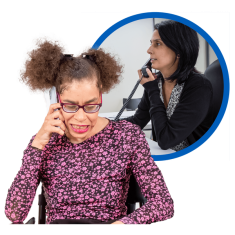
The mental health worker might
- Refer you to the local mental health team
or
- Give you information about other services that can help you

A referral is when someone says you should see another worker if you need more help.

If you have an NDIS plan you might be able to get different supports.
To find out more about what support you can get from the NDIS chat to your support coordinator.
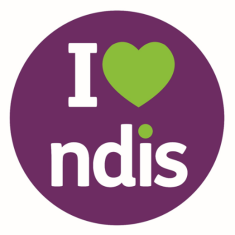
NDIS is short for National Disability Insurance Scheme.
Your NDIS plan says what supports you need.
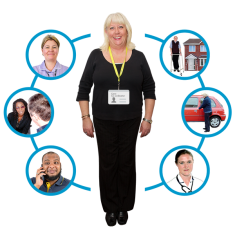
A support coordinator is a person who helps plan and organise
- Your care
- Other services you get

You can call and get free services and resources for your mental health.
For more information on where to find support go to https://www.idmhconnect.health/where-start-get-help/ER

You are worried about social services if you get mental health support
This is what you can do.

Social services are government services such as
- Child welfare
- Housing support
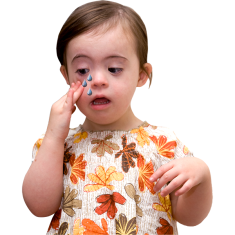
Child welfare protects children from harm by
- Giving support
- Making sure they have a safe place to live

Your mental health care is separate from social services.
Social services will only get involved in your life if you

- Need support that is not disability or mental health support

- You or someone else is in danger

Below is a list of services and supports for First Nations peoples.
Translation and interpreter services

Below are a list of translation and interpreter services that support First Nations peoples.

Translating and Interpreting Service provides onsite and on phone interpreting.
The telephone number for this service is 131 450.

The National Interpreting and Communication Service provide interpretation for some of the different sign languages used by First Nations peoples.
The hours can be paid under NDIS interpreting hours.
For more information go to https://www.nicss.org.au/aboriginal-and-torres-strait-islander.html

2M Language Services can provide interpreters for some of the First Nations languages for a fee.
For more information go to https://www.2m.com.au/interpreting-services/indigenous-language-interpreting/

Lifeline Australia provides crisis support in different languages.
Call Lifeline on 13 11 14 and ask to speak to someone in your language.
Mental health supports
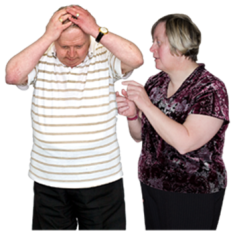
Below are a list of mental health supports for First Nations peoples.
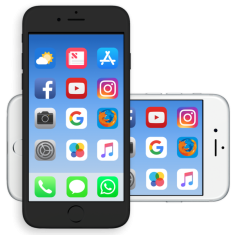
iBobbly is an app designed for First Nations peoples to support their own mental health.
For more information go to https://www.blackdoginstitute.org.au/
resources-support/digital-tools-apps/ibobbly/
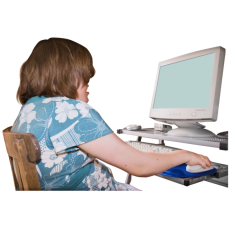
WellMob is an online tool designed for First Nations peoples to support their own mental health.
For more information go to https://wellmob.org.au/
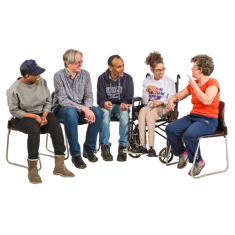
Proppa Deadly is a talk show where First Nations people tell their stories about mental health problems.
For more information go to
https://989fm.com.au/listen /programs/lets-talk/proppa-deadly-napsia-vin-thal/

Trauma and Grief Network has helpful information and tips about dealing with trauma and grief tips for First Nations peoples.
For more information go to https://tgn.anu.edu.au/
resource/indigenous/
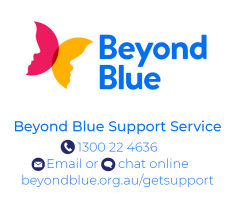
Beyond Blue gives information about mental health problems for First Nations peoples.
For more information go to
https://www.beyondblue.org.au/who-does-it-affect/aboriginal-and-torres-strait-islander-people

Beyond Blue also provides information about dealing with discrimination because of your First Nations background.
For more information go to
https://www.beyondblue.org.au/who-does-it-affect/the-invisible-discriminator
Other services and supports

Below are a list of other supports and services for First Nations peoples.
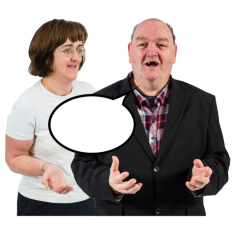
First Peoples Disability Network provides advocacy and support for First Nations peoples with disability.
For more information go to

National Indigenous Postvention Service provides support for First Nations people and communities affected by suicide.
The telephone number for this service is 1800 805 801.
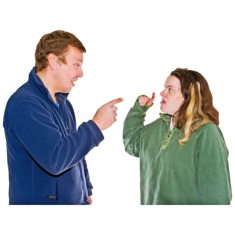
Aboriginal and Torres Strait Islander mediation provides free mediation and conflict management services.
Mediation is when a person comes to support people when they have big arguments or fights.
For more information go to https://www.cjc.justice.nsw.gov.au/Pages/
cjc_whytry_mediation/com_justice_
mediation_atsi.aspx

All Together Now provides information for people who want to report racism.
You can report racism here.
For more information go to

Racism is when people discriminate against you because of your culture or background.
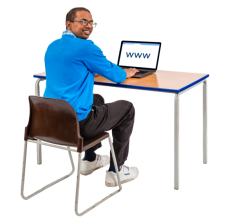
Wuuwi Gambling helps provide counselling services for First Nations peoples struggling with gambling issues.
For more information go to https://aboriginalsafegambling.com.au/
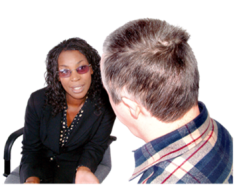
Counselling therapy is when you chat with mental health workers about
- Issues in your life
- Ways you can fix these issues

Gambling is when you play games for the chance to win money.
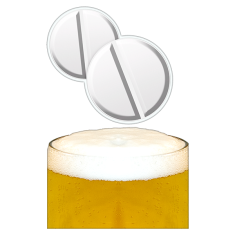
Your Room provides information on services that support First Nations peoples to reduce the harm caused by alcohol and drugs.
They also provide culturally safe phone counselling and referral.
For more information go to
Search tools for health services and supports
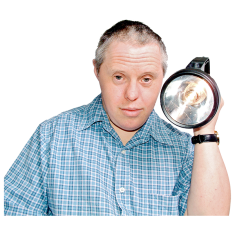
Below is a list of search tools you can use to find supports and services for First Nations peoples.

Ask Izzy can help you search for the right services and supports for you.
For more information go to https://askizzy.org.au/

Australian Indigenous HealthInfo Net provides a search tool to find First Nations health workers and health practitioners near you.
For more information go to https://healthinfonet.ecu.edu.au/key-resources/health-professionals/health-workers/map-of-aboriginal-and-islander-healthmedical-services/?&pagenum=1&sorter=1
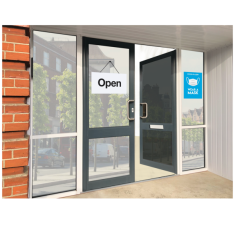
Aboriginal Health and Medical Research Council provide a list of health services across NSW that support First Nations peoples.
For more information go to

National Aboriginal Community Controlled Health Organisation provides a list of community health centres in NSW that support Aboriginal peoples.
For more information go to
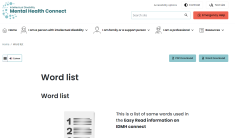
There are some tricky words on this Easy Read page.
For more information about these words go to